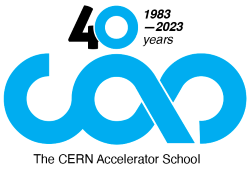Speaker
Description
Magnetic materials, both hard and soft, are used extensively in several components of particle accelerators. Magnetically soft iron-nickel alloys are used as shields for the vacuum chambers of accelerator injection and extraction septa; Fe-based material is widely employed for cores of accelerator and experiment magnets. Weakly magnetic austenitic stainless steels are largely applied for structural and vacuum systems. After a review of the magnetic properties of materials and the different types of magnetic behaviour, this first lecture will deal with metallurgical aspects of magnetism. The influence of the metallurgy and metalworking processes of materials on their microstructure and magnetic properties is studied for different categories of magnetic materials relevant for accelerator technology. Their metallurgy is extensively treated. Hard magnetic material will also be covered. In the second lecture, the selection of materials for functional and structural components of accelerator and fusion magnets is addressed with examples taken from normal and superconducting magnets. The talk will address the material challenges of magnet construction, requiring a wide application of tightly specified grades, featuring a controlled microstructure and adequate mechanical, physical, magnetic and vacuum properties over a large temperature range. A broad spectrum of relevant examples will be presented, issued from the experience maturated within decades of building of large magnet systems that must guarantee a reliable, long-lasting service with limited interventions. The requirements, and in turn the metallurgical processes applied to achieve the final stringent properties will be discussed - dictated by mechanical, magnetic or vacuum compatibility constraints and often by a combination of them. A case study will be developed, highlighting the challenges of application of a stainless steel solution for the upgrade of the detector structure of the Compact Muon Solenoid (CMS), which is one of the two large experiments at the CERN Large Hadron Collider (LHC), involving the construction of a High Granularity Calorimeter in the framework of the High Luminosity LHC upgrade. This requires a cost-effective production of 600 tons of austenitic stainless steel plates with a tight specification in terms of magnetic permeability, to be processed through a tailored steelmaking route. Methods for characterizing and measuring the properties of feebly magnetic materials will also be addressed.
